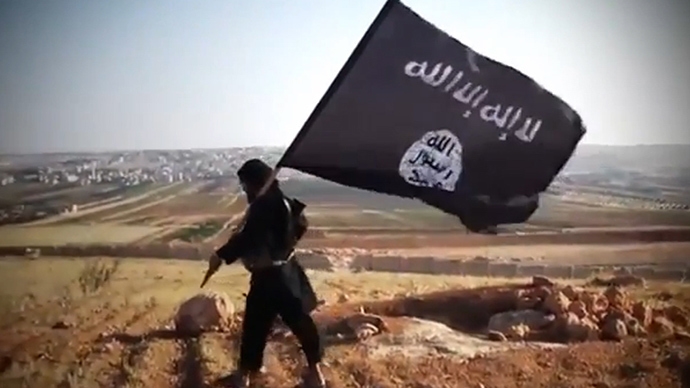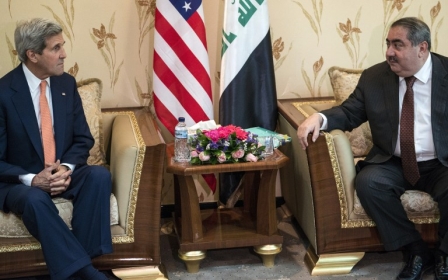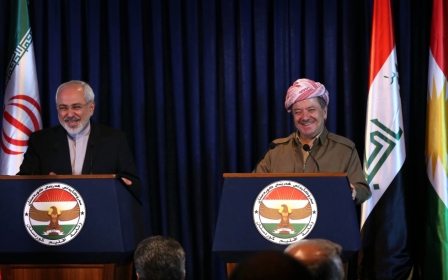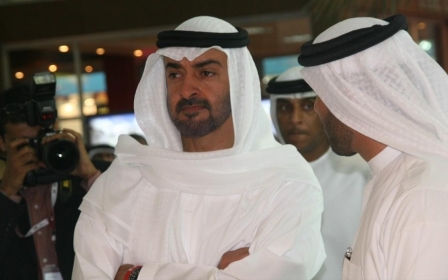Islamic State is cementing, not destroying regional order

All the talk these days is about how the Islamic State is redrawing the map of the Middle East. This is true - for now - with regard to Iraq and Syria, on whose territories it recently declared a caliphate. However, to a far greater extent, the IS is inadvertently achieving the opposite of what it intends. Its threats, atrocities and rapid expansion are cementing the existing regional order rather than destroying it.
Its rise has given autocrats a sense of vindication in their warnings that a threat to their absolute hold on power would result in Islamist militancy and fanaticism. Once-restive populations have quietened, their exasperation with their dictatorships trumped by the very real fear that their countries could end up like Syria, or Iraq, or Libya, or Egypt, or Yemen.
IS is threatening surrounding states, and even those beyond - threats that should be taken very seriously. However, most of the region's leaders are arguably sitting more comfortably than at any time since the start of the Arab Spring.
The brutality and effectiveness of the IS have galvanised governments in the Middle East and North Africa, as well as the international community, to face a common enemy, and to coordinate as much as possible in doing so.
To an extent, state abuses are being ignored and bitter rivalries put to one side in that pursuit. A stark example is Iran's supreme leader this week reportedly approving military cooperation with the US to fight the IS, and the State Department saying "we're open to engaging" Tehran. Although the US and Iran have now denied reports that they are coordinating their efforts, the possibility of collaboration would have previously been unthinkable.
There are even a growing number of voices in the West advocating - however grudgingly - working with Bashar al-Assad. A man whose brutal response to an initially peaceful revolution has resulted so far in the deaths of almost 200,000 Syrians, the displacement of around half the entire population and the destruction of the country, is being considered as a partner.
In addition, his allies are more determined than ever to prop him up. Although Assad's forces and the IS are belatedly fighting each other, the latter has focused most of its attention in Syria on targeting rebels opposed to the regime, at a cost of several thousand lives since the start of the year. All in all, the IS is proving to be a boost to Assad's longevity.
Rulers across the region are echoing American, European and international calls for a united, global strategy against the IS. Such a broad-based approach is necessary, but this very breadth means a blind eye to state practices and abuses, some of them directly contributing to the kind of extremism that everyone seems intent on eradicating. The thinking is, “if we can be seen as part of the solution, we will not be seen as part of the problem.”
The IS has become as much a lightning rod as George Bush's maniacal “war on terror,” which spawned global franchises of terrorism and oppressive regimes claiming to counter it. Once again, countries across the region are declaring their own “'wars on terror,” in turn, justifying draconian measures that target dissent generally, not the IS specifically.
They plead for international help - mainly military, of course - and given the urgency in combating the IS, such aid is amply forthcoming, but at such a pace that there is little thought as to how these weapons may be used to cling to power. This is, after all, the Arab world.
Regional states during Bush's “war on terror” conflated various organisations and movements with al-Qaeda. The same is happening now, with Hamas, the Muslim Brotherhood and other groups being viewed, portrayed and treated as no different to the IS, often out of expediency rather than genuine belief.
In Egypt, however, the IS has played into the authorities' discourse of curbing rights and freedoms in the name of fighting terrorism. Cairo had already been citing the Brotherhood as the reason for its crackdown on dissent, which has expanded well beyond the movement.
The Sinai-based group, Ansar Bayt al-Maqdis, which has killed hundreds of members of Egypt's security forces in the last year, is reportedly being instructed by the IS on effective military methods. This is giving the authorities added impetus and public support to intensify its general crackdown. Meanwhile, President Abdel Fattah al-Sisi wants in on the anti-IS coalition, and the West - which had been critical of his heavy-handedness - is obliging.
The IS is not just consolidating the positions of the region's rulers, but also those of foreign powers. The Americans, Brits, French and Russians have a destructive record in the Middle East and North Africa, for which they have been viewed with widespread public suspicion and hostility.
One of the aims of the Arab Spring was to throw off the shackles of foreign interference. This jeopardised the traditional influence and dominance of outside powers. Now, however, they are clamouring to renew or deepen their regional involvement, and are being welcomed, as if their policies will somehow no longer be self-serving or short-sighted.
To a large extent, they can thank the IS for opening that door wider, for allowing foreign involvement to be seen as the lesser of two evils. Meanwhile, the alliances between these outside powers and their regional allies are being consolidated.
The IS has inflicted a double tragedy on the people of the region. Not only is it displaying unadulterated viciousness, but it is cementing - rather than existentially threatening - a dysfunctional order.
- Sharif Nashashibi is an award-winning journalist and analyst on Arab affairs. He is a regular contributor to Al Arabiya News, Al Jazeera English, The National, and The Middle East magazine. In 2008, he received an award from the International Media Council "for both facilitating and producing consistently balanced reporting" on the Middle East.
The views expressed in this article belong to the author and do not necessarily reflect the editorial policy of Middle East Eye.
Photo credit: An image grab taken from a video uploaded on YouTube in July shows an Islamic State fighter (AFP/YouTube)
New MEE newsletter: Jerusalem Dispatch
Sign up to get the latest insights and analysis on Israel-Palestine, alongside Turkey Unpacked and other MEE newsletters
Middle East Eye delivers independent and unrivalled coverage and analysis of the Middle East, North Africa and beyond. To learn more about republishing this content and the associated fees, please fill out this form. More about MEE can be found here.





